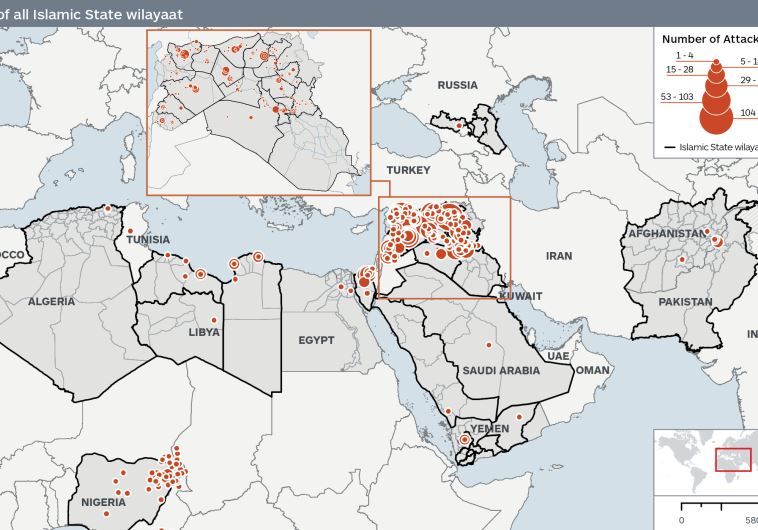FOR ZION’S SAKE: Drawing a line in the Mideast sand
We in Israel were not impressed by the leader of ISIS’s threat to turn Palestine into our graveyard.
 Map charting ISIS attacks(photo credit: IHS JANE’S TERRORISM AND INSURGENCY CENTRE (JTIC))Updated:
Map charting ISIS attacks(photo credit: IHS JANE’S TERRORISM AND INSURGENCY CENTRE (JTIC))Updated: